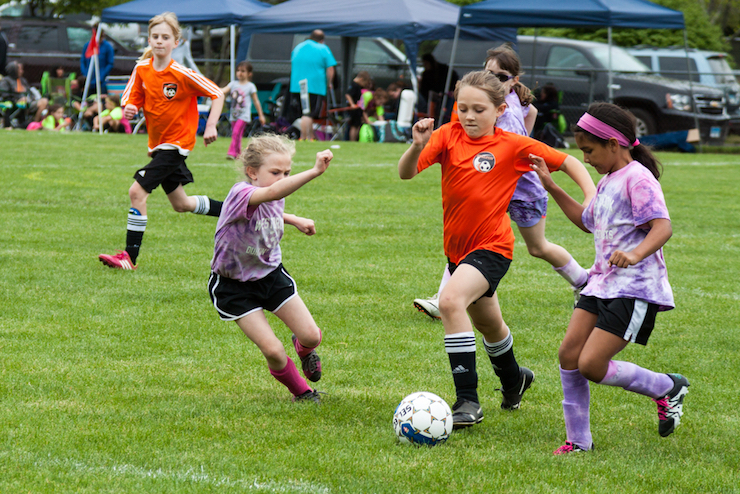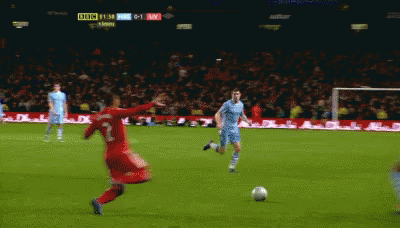
A variety of officials oversee soccer. These officials are called referees. They make the final calls, and they also direct the game. Linesmen, fourth officials, or a video assistant, assist them. The referee is the most important official in major soccer games. Referees are considered to be the best officials on the field when they make the right calls.
Assistant referees
Assisting referees in soccer matches are those who help the referee. They are responsible to call fouls, offside and kick goals. They also assist with time-outs and may call free kicks. There are two assistant referees for each game. Some countries may have four. Assistant referees generally do not require any special qualifications. National associations usually require assistant referees be at least 18-years-old.
The level and difficulty of a soccer game will affect the number of assistant officials involved. In the top European football leagues, a match requires at least five officials, including a head referee and two assistant referees. Two assistant referees, at minimum, should be available on the touchline. Also, a video assistant should be present. For most youth or school soccer games, there are enough assistant referees. If a game is at professional level, however, it should have at most four referees.

Head referees
The most important person on the soccer pitch is the head referee. He enforces the rules of play, calls penalties, and suspends play when a soccer player is hurt. He is also the one who can dismiss a manager from the sideline. He also watches the play as it happens on the pitch. A fourth official or linesman is located between the benches.
Referees can make disciplinary decisions before or after a match. Referees may observe certain aspects of play, like head- and tackling. Referees can also suspend play if the game seems out of control.
Fourth official
The Fourth Official in soccer serves to support the Referee in deciding the result of a match. This person will relay tactical instructions from Technical Area back to the Referees. They assist substitutes and players during matches.
The Fourth Official oversees substitutions and ensures that all players have their equipment. They also signify substitutions on an electronicboard. They also have to record substitution times. They supervise the replacement of balls as well as the entry of medical personnel.

Video assistant referee
VAR in soccer matches is controversial. This has led to questions about whether or not the technology has helped improve the game. VAR's decisions can be criticized by fans as taking too much time. Some supporters are calling for VAR's discontinuance. FIFA claims that VAR helps referees make better decision making. It claims that VAR helped to resolve 29 major incidents, and six game-changing calls during the 2017 Confederations Cup. According to the organization, VAR would have made the Confederations Cup more fair without it. However, VAR is not appreciated by all coaches and players. These coaches say VAR can lead to confusion due to the length of reviewing decisions.
Former or current referees can assist in reviewing decisions on the field. Their task is to review a wide variety of decisions, including offside, handball and penalties. Some reviews are done based entirely on the incident. Others are based only upon the video footage.
FAQ
What does "A" in soccer refer to?
The letter A stands for Association Football. This is the official name of football. The game's name, association, comes from the fact it was created in England by Oxford University students.
What is a goal kick?
Goal kicks are the moment when a goalie places the ball above the crossbar and into a net. Goal kicks can be called "golden occasions" One example of a great golden opportunity is a long-range shot which goes just wide of goal.
What is an attacker doing in soccer?
Of all the players on the field, attackers are the best passers. They distribute the ball to forwards and midfielders who pass it on to attackers. Attackers are often agile and quick and they are expected to score many goals during matches.
Can I play soccer without any special equipment?
It is possible to play soccer without special equipment. You only need a ball, a field and some teammates. A team can be formed if there are friends who want to play with you.
What is the difference between football and soccer?
Soccer and football are very similar. Both require that a ball is kicked through a narrow opening known as a goal. However, soccer requires players to pass the ball while running instead of just kicking the ball. Also, soccer uses smaller balls than football.
What is a Corner Kick in Soccer?
Corner kicks are where the ball is kicked to the goal from the sideline of the field. These kicks are often taken by players on the wing (or side) of the pitch. The goalie runs towards the penalty box and takes the shot. Corner kicks can be one of the most exciting aspects of soccer, as they provide scoring opportunities.
What are the various types of soccer balls available?
There are three main categories of soccer balls: indoor, outdoor, and training. Indoor soccer balls are used during practice sessions. Outdoor soccer balls can withstand rain and wind. Training balls are made specifically for children.
Statistics
- They are not just good at dribbling because they are talented alone, but because they put in 100% effort during every practice. (coachtube.com)
- Get 10% off your first purchase using code BLOG. (technefutbol.com)
- the estimated cumulative television audience for the 2006 World Cup in Germany was 26.2 billion, an average of 409 million viewers per match." (en.wikipedia.org)
- At the 2018 FIFA World Cup, Belgium playmaker Eden Hazard, renowned for being difficult to dispossess, set a World Cup record for successful dribbles completed in any World Cup game since 1966, with a 100% success rate in ten dribbles against Brazil.[10] (en.wikipedia.org)
- From the 1850s onward, industrial workers were increasingly likely to have Saturday afternoons off work, and so many turned to the new game of football to watch or to play. (britannica.com)
External Links
How To
How to play soccer
Soccer requires that you have excellent skills like dribbling and passing, shooting, heading, tackling and so on. These skills should always be improved. You should practice them daily. These steps will help you learn how to play soccer correctly.
-
Practice dribbling. Dribble around the field until you get comfortable with it. Begin practicing dribbling quickly, only doing it for five minutes at a stretch. Once you feel comfortable with your dribbling skills, you can increase the duration to 10 mins. This technique should be practiced daily.
-
Practice passing. Practice passing the ball in front of you and behind you. You must pass the ball correctly to the person with the space. Don't throw too many passes. It is best to throw the ball straight to the player that needs it. This will save you time and keep your body warm.
-
Practice heading. Heading is the ability to position the ball precisely in the net. First, practice getting into position to reach this goal. Standing directly in front of the target, face the goal. Next, bend forward slightly to place the ball under your nose. Next, raise your head towards the top-left corner of the net. Your eyes should point straight ahead. Stand straight up and then release the ball.
-
Practice handling. Tackling can be one of the most difficult skills to master. But once you master it, football is much more enjoyable. Start by tackling with your chest, shoulders and head. Don't drop. Also, remember to keep your arms close to your body. It is better to tackle in smaller groups of two people. One player is the defender and one of the attackers. Once the attacker has passed the defender, the attacker must be tackled immediately.
-
Shooting is a skill that can be learned. Shooting is a skill that is difficult to master and requires a lot practice. The first step is to locate a location where you can comfortably shoot (e.g. Next to the goal. Focus on your form. Hold the ball between your hands, keeping it away from your body. Point your toes up and bend your knees. You can shoot the ball by moving your wrist in a circular motion. Your goal should be at the bottom right corner.
-
You can improve your running skills by practicing. Running takes practice. Slowly build speed and start slow. You should not use running as a way to attack because it can tire your muscles. Instead, help your teammates by running towards the goal.
-
Practice kicking. Kicking can be one of most difficult skills to master but also one that is the easiest. You must develop core strength and leg strength to be able to kick accurately. You can place your feet together and lift one foot at a stretch. Slowly kick the ball towards your net with only your heels.
-
Keep practicing dribbling. This is probably the most essential skill needed to become a great player. Dribbling allows for you to control your game's pace. It allows you to set the pace. The key to mastering dribbling is consistency. It is important to not change the way you dribble each day. Stay true to your strengths.
-
Do not practice kicks. Free kicks are often given after a foul is committed or when the goalkeeper makes mistakes. You can score goals with free kicks without needing to play the whole match. Practice aiming for the corners of the goal. Remember to always use your instep and not your heel.
-
Practice defending. Defending is all about positioning. Playing defense means staying close to your opponent. You can block the opponent's path to prevent him scoring if he gets the ball. Always watch out for your teammate's safety.